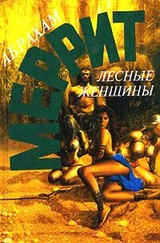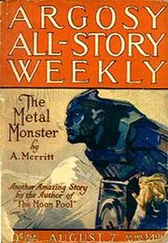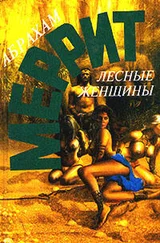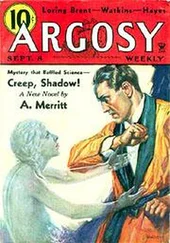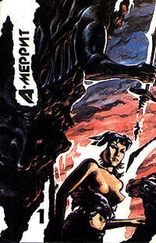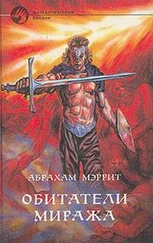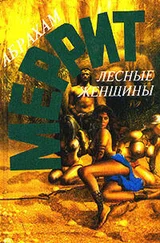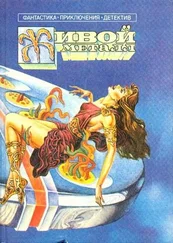Абрахам Меррит - Dwellers in the Mirage
Здесь есть возможность читать онлайн «Абрахам Меррит - Dwellers in the Mirage» весь текст электронной книги совершенно бесплатно (целиком полную версию без сокращений). В некоторых случаях можно слушать аудио, скачать через торрент в формате fb2 и присутствует краткое содержание. Год выпуска: 2017, Издательство: epubBooks Classics, Жанр: Фэнтези, на английском языке. Описание произведения, (предисловие) а так же отзывы посетителей доступны на портале библиотеки ЛибКат.
- Название:Dwellers in the Mirage
- Автор:
- Издательство:epubBooks Classics
- Жанр:
- Год:2017
- ISBN:нет данных
- Рейтинг книги:5 / 5. Голосов: 1
-
Избранное:Добавить в избранное
- Отзывы:
-
Ваша оценка:
- 100
- 1
- 2
- 3
- 4
- 5
Dwellers in the Mirage: краткое содержание, описание и аннотация
Предлагаем к чтению аннотацию, описание, краткое содержание или предисловие (зависит от того, что написал сам автор книги «Dwellers in the Mirage»). Если вы не нашли необходимую информацию о книге — напишите в комментариях, мы постараемся отыскать её.
Dwellers in the Mirage — читать онлайн бесплатно полную книгу (весь текст) целиком
Ниже представлен текст книги, разбитый по страницам. Система сохранения места последней прочитанной страницы, позволяет с удобством читать онлайн бесплатно книгу «Dwellers in the Mirage», без необходимости каждый раз заново искать на чём Вы остановились. Поставьте закладку, и сможете в любой момент перейти на страницу, на которой закончили чтение.
Интервал:
Закладка:
"There is need for haste, Dwayanu."
"I am ready. Wait—"
I went over to where my old clothes lay, and rolled them up around my boots. After all—I might need them. The Witch–woman made no comment, opened the door and we went out. The captain and her guard were in the corridor, also a half–dozen of Lur's women, and handsome creatures they were. Then I noticed that each of them wore the light coat of mail and, besides the two swords, carried throwing hammers. So did Lur. Evidently they were ready for trouble, whether with me or with someone else; and whichever way it was, I didn't like it.
"Give me your sword," I said abruptly to the captain. She hesitated.
"Give it to him," said Lur.
I weighed the weapon in my hand; not so heavy as I would have liked, but still a sword. I thrust it into my girdle, and bunched the bundle of my old clothes beneath my left arm, under the cloak. We set off down the corridor, leaving the guard at the door.
We went only a hundred yards, and then into a small bare chamber. We had met no one. Lur drew a breath of relief, walked over to a side, and a slab of stone slid open, revealing a passage. We went into that and the slab closed, leaving us in pitch–darkness. There was a spark, produced I don't know how, and the place sprang into light from torches in the hands of two of the women. They burned with a clear, steady and silvery flame. The torch–bearers marched ahead of us. After a while we came to the end of that passage, the torches were extinguished, another stone slid away and we stepped out. I heard whispering, and after the glare of the flambeaux had worn away, I saw that we were at the base of one of the walls of the black citadel, and that close by were half a dozen more of Lur's women, with horses. One of them led forward a big grey stallion.
"Mount, and ride beside me," said Lur.
I fixed my bundle on the pommel of the high saddle, and straddled the grey. We set off silently. It was never wholly dark at night in the land under the mirage; there was always a faint green luminescence, but to–night it was brighter than I had ever seen it. I wondered whether there was a full moon shining down over the peaks of the valley. I wondered if we had far to go. I was not as drunk as I had been when Lur had come in on me, but in a way I was drunker. I had a queer, light–headed feeling that was decidedly pleasant, a carefree irresponsibility. I wanted to keep on feeling that way. I hoped that Lur had plenty of wine wherever she was taking me. I wished I had a drink right now.
We were going through the city beyond the citadel, and we went fast. The broad street we were on was well paved. There were lights in the houses and in the gardens and people singing and drums and pipes playing. Sinister the black citadel might be, but it did not seem to cast any shadow on the people of Karak. Or so I thought then.
We passed out of the city into a smooth road running between thick vegetation. The luminous moths like fairy planes were flitting about, and for a moment I felt a pang of memory, and Evalie's face floated up before me. It didn't last a second. The grey went sweetly and I began to sing an old Kirghiz song about a lover who rode in the moonlight to his maid and what he found when he got there. Lur laughed, and put her hand over my mouth.
"Quiet, Dwayanu! There still is danger." Then I realized that I hadn't been singing the Kirghiz at all, but the Uighur, which was probably where the Kirghiz got it from. And then it occurred to me that I had never heard the song in the Uighur. It started the old problem going in my mind—and that lasted no longer than the memory of Evalie.
Now and then I caught a glimpse of the white river. And then we went over a long stretch where the road narrowed so that we rode single file between verdure–covered cliffs. When we came out of them, the road forked. One part of it ran right on, the other turned sharply to the left. We rode along this for three or four miles, apparently directly through the heart of the strange forest. The great trees spread their arms out far overhead; the candelabras and cressets and swaying ropes of blooms gleamed like ghosts of flowers in the pallid light; the scaled trees were like men–at–arms on watch. And the heady fragrances, the oddly stimulating exhalations were strong—strong. They throbbed from the forest, rhythmically, as though they were the pulse of its life–drunken heart.
And as we came to the end of that road and I looked down upon the Lake of the Ghosts.
Never, I think, in all the world was there such a place of breath–taking, soul–piercing, unearthly beauty as that lake beneath the mirage in which Lur the Witch–woman had her home. And had she not been Witch–woman before she dwelt there, it must have made her so.
It was shaped like an arrow–head, its longer shores not more than a mile in length. It was enclosed by low hills whose sides were covered with the tree–ferns; their feathery fronds clothed them as though they were the breasts of gigantic birds of Paradise; threw themselves up from them like fountains; soared over them like vast virescent wings. The colour of its water was pale emerald, and like an emerald it gleamed, placid, untroubled. But beneath that untroubled surface there was movement—luminous circles of silvery green that spread swiftly and vanished, rays that laced and interlaced in fantastic yet ordered, geometric forms; luminous spirallings, none of which ever came quite to the surface to disturb its serenity. And here and there were clusters of soft lights, like vaporous rubies, misted sapphires and opals and glimmering pearls—witch–lights. The luminous lilies of the Lake of the Ghosts.
Where the point of the arrow–head touched, there were no ferns. A broad waterfall spread itself like a veil over the face of the cliff, whispering as it fell. Mists rose there, mingling with the falling water, dancing slowly with the falling water, swaying toward it and reaching up with ghostly hands as though to greet it. And from the shores of the lake, other wraiths of mist would rise, and glide swiftly over the emerald floor and join those other dancing, welcoming wraiths of the waterfall. Thus first I saw the Lake of the Ghosts under the night of the mirage, and it was no less beautiful in the mirage day.
The road ran out into the lake like the shaft of an arrow. At its end was what once, I supposed, had been a small island. It lay two–thirds of the way across. Over its trees were the turrets of a small castle.
We walked our horses down the steep to the narrowing of the road where it became the shaft of the arrow. Here there were no ferns to hide the approach; they had been cleared away and the breast of the hill was covered with the blue flowerets. As we reached the narrow part, I saw that it was a causeway, built of stone. The place to which we were going was still an island. We came to the end of the causeway, and there was a forty–foot gap between it and a pier on the opposite shore. Lur drew from her girdle a small horn and sounded it. A drawbridge began to creak, and to drop down over the gap. We rode across that and into a garrison of her women. We cantered up a winding road, and I heard the creak of the lifting bridge as we went. We drew up before the house of the Witch–woman.
I looked at it with interest, not because it was unfamiliar, for it was not, but I was thinking I had never seen a castle of its sort built of that peculiar green stone nor with so many turrets. Yes, I knew them well. "Lady castles," we had called them; lana'rada, bowers for favourite women, a place to rest, a place to love after war or when weary of statecraft.
Women came and took the horses. Wide doors of polished wood swung open. Lur led me over the threshold.
Girls came forward with wine. I drank thirstily. The queer light–headedness, and the sense of detachment were growing. I seemed to have awakened from a long, long sleep, and was not thoroughly awake and troubled by memories of dreams. But I was sure that they had not all been dreams. That old priest who had awakened me in the desert which once had been fertile Ayjirland—he had been no dream. Yet the people among whom I had awakened had not been Ayjirs. This was not Ayjirland, yet the people were of the ancient breed! How had I gotten here? I must have fallen asleep again in the temple after—after—by Zarda, but I must feel my way a bit! Be cautious. Then would follow a surge of recklessness that swept away all thought of caution, a roaring relish of life, a wild freedom as of one who, long in prison, sees suddenly the bars broken and before him the table of life spread with all he has been denied, to take as he wills. And on its heels a flash of recognition that I was Leif Langdon and knew perfectly well how I came to be in this place and must some way, somehow, get back to Evalie and to Jim. Swift as the lightning were those latter flashes, and as brief.
Читать дальшеИнтервал:
Закладка:
Похожие книги на «Dwellers in the Mirage»
Представляем Вашему вниманию похожие книги на «Dwellers in the Mirage» списком для выбора. Мы отобрали схожую по названию и смыслу литературу в надежде предоставить читателям больше вариантов отыскать новые, интересные, ещё непрочитанные произведения.
Обсуждение, отзывы о книге «Dwellers in the Mirage» и просто собственные мнения читателей. Оставьте ваши комментарии, напишите, что Вы думаете о произведении, его смысле или главных героях. Укажите что конкретно понравилось, а что нет, и почему Вы так считаете.
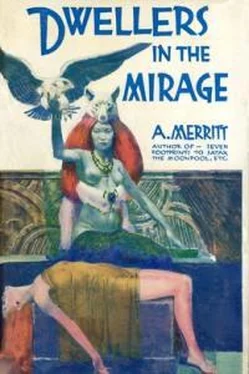
![Абрахам Меррит - Лунный бассейн [Лунная заводь]](/books/20623/abraham-merrit-lunnyj-bassejn-lunnaya-zavod-thumb.webp)
